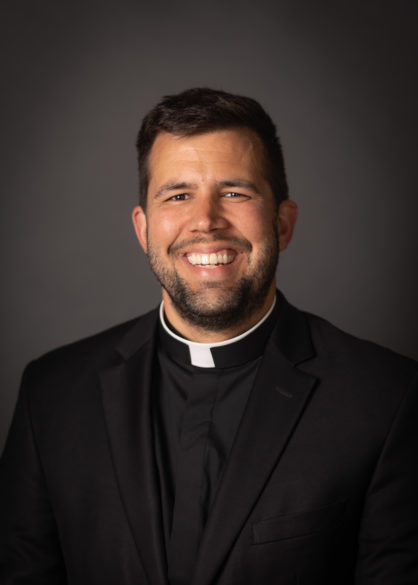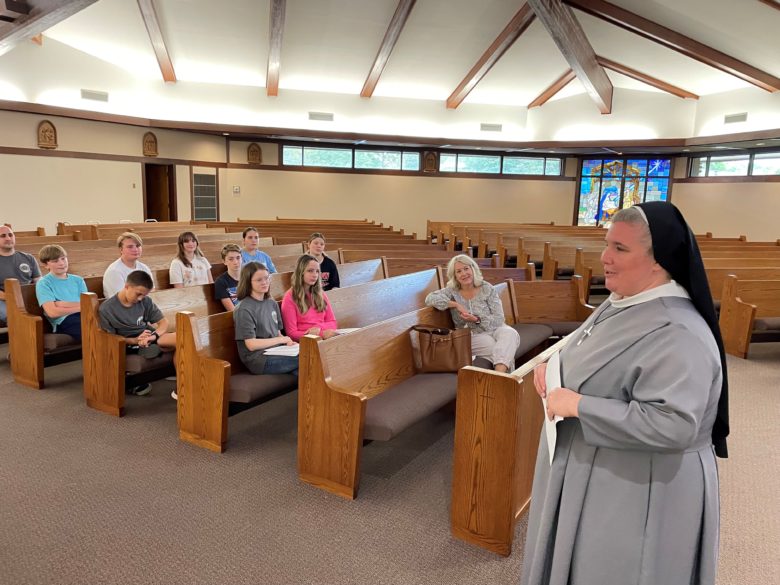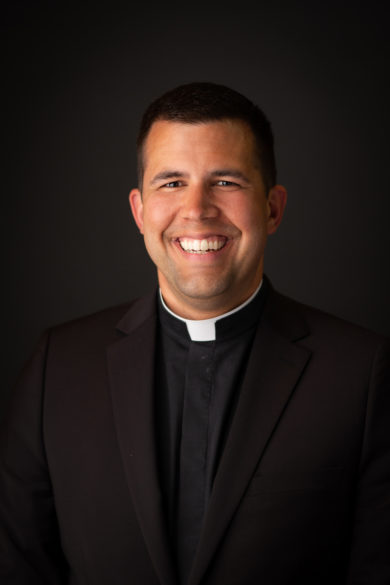In his book From Christendom to Apostolic Mission, Msgr. James Shea makes the argument that the Catholic Church must reconnect with her evangelical roots. He spends a couple of chapters in this short book explaining that structures within our society that used to be infused with Christianity no longer are, and college students who used to return to their religious roots after a few years away at school often no longer do so. Msgr. Shea does a great job explaining the reality that we are living in, and he also gives an encouraging and invigorating challenge to those who love Jesus and His church: be disciples first, and then become apostles.
FOCUS seeks to answer this call in an inspiring way. The Fellowship of Catholic University Students (FOCUS) is a national network of missionaries who work on college campuses to help students become disciples of Jesus Christ. They also train those student-disciples to become apostles, encouraging them to go out and preach the Gospel after it has led them to change their own lives. The annual FOCUS conference, SEEK, was held in St. Louis earlier this month, and the fruits of their mission were on display. About 19,000 people attended the conference. It was amazing to witness the faith and dedication of these young people, and not just their faith, but their formation. In speaking with the attendees and spending time with them, it was clear that they didn’t just like coming to church, but on top of that they were in a living relationship with Jesus Christ, or they were at least on the road to having one. They were dedicated to the sacraments and they understood why the sacraments were important to their life.
As the head of FOCUS, Curtis Martin stated in one of the breakout sessions: our colleges and universities help to set the course of our culture, and the next generation is formed during these four critical years, so we must bring the Gospel to these campuses or risk young people losing their faith entirely before entering the work force. This conference was a very life-giving event for me, but it also has left me considering what I can do as a priest to support the young people I met and was inspired by. The young church needs priests who will accompany them and bring them into contact with the Lord through the sacraments. There were about 400 priests at FOCUS, and it was amazing to see how the students would regularly come up to us with big smiles and ask for various items to be blessed, or for prayers for a certain intention, or for one of us to hear their confession.
As vocation director, I am grateful for the work done by campus ministers across our diocese. About 80 students from our diocesan universities attended the conference. FOCUS serves at Mississippi State right now and they had about 60 attendees alone! But all of us share in the responsibility to form our young people in the faith, and I am grateful that I was able to attend this event, and it has led me to think seriously about the way that I evangelize. Nearly 19,000 people attended a conference centered on Jesus and the sacraments. The desire for God is in the hearts of young people — what are we doing to bring Him to them?
– Father Nick Adam
If you are interested in learning more about religious orders or vocations to the priesthood and religious life, email nick.adam@jacksondiocese.org.




